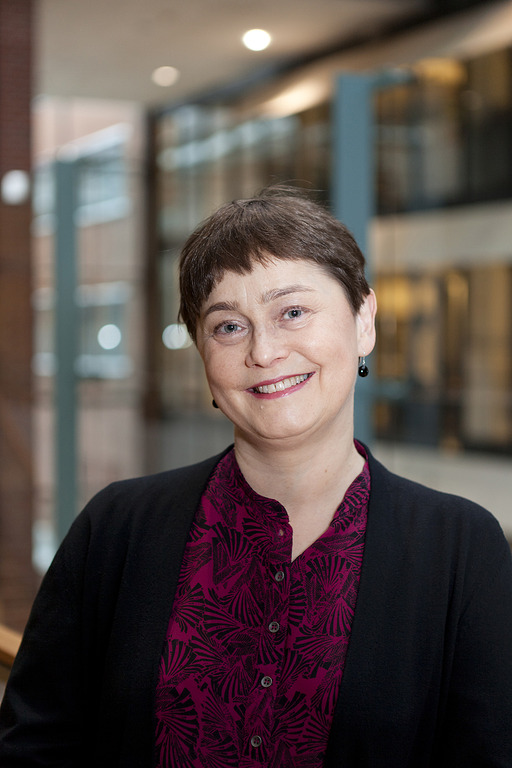Keynote Speakers
Keynote Speakers
Professor Hojjat Adeli
Ohio State University, Columbus, USA, Fellow of the Institute of Electrical and Electronics Engineers (IEEE) (IEEE), Honorary Professor, Southeast University, Nanjing, China, Member, Polish and Lithuanian Academy of Sciences, Elected corresponding member of the Spanish Royal Academy of Engineering.
Title: Machine Learning: A Key Ubiquitous Technology in the 21st Century.
Short Bio: Hojjat Adeli received his Ph.D. from Stanford University in 1976 at the age of 26. He is currently an Academy Professor at The Ohio State University where he held the Abba G. Lichtenstein Professorship for ten years. He is the Editor-in-Chief of the international journals COMPUTER-AIDED CIVIL AND INFRASTRUCTURE ENGINEERING which he founded in 1986 and INTEGRATED COMPUTER-AIDED ENGINEERING which he founded in 1993. He has also served as the Editor-in-Chief of the INTERNATIONAL JOURNAL OF NEURAL SYSTEMS since 2005. He has been an Honorary Editor, Advisory Editor, or member of the Editorial Board of 144 research journals. He has authored over 600 research and scientific publications in various fields of computer science, engineering, applied mathematics, and medicine, including 16 ground-breaking high-technology books. He is the recipient of over sixty awards and honors including three Honorary Doctorates from Lithuania, Spain, and Italy, and Honorary Professorship at several Asian and European Universities. He is a member of Academia Europaea, a corresponding member of the Spanish Royal Academy of Engineering, a foreign member of Lithuanian Academy of Sciences and Polish Academy of Science, a Distinguished Member of American Society of Civil Engineers (ASCE), and a Fellow of AAAS, IEEE, AIMBE, and American Neurological Association. He was profiled as an /Engineering Legend/ in the journal /Leadership and Management in Engineering/, ASCE, April 2010, by a noted biographer of legendary engineers.
Professor Riitta Salmelin
Department of Neuroscience and Biomedical Engineering Aalto University, Finland.
Title: What neuroimaging can tell about human brain function.
Abstract: Over the past few decades, real-time tracking of cortical current flow (magneto/electroencephalography, MEG/EEG) and accurate localisation of blood oxygenation changes (functional magnetic resonance imaging, fMRI) have offered windows to the functional architecture of the human brain. The neuroimaging domain has reached its first level of maturity: we now know how to measure and quantify different types of signals and, phenomenologically, we know what type of group-level functional effects to expect in a large variety of experimental conditions. Specific brain areas, networks and electrophysiological dynamics have been proposed to be linked with various perceptual, motor and cognitive functions and their disorders. To reach the next phase in human neuroscience, we need to advance from group-level descriptions to quantitative model-based individual-level predictions. These developments will be illustrated with focus on language function for which descriptive models, largely based on observations of patients with language disorders, are being supplemented by computationally explicit models of mechanisms and representations. Machine learning approaches are essential tools in this endeavour.
Short Bio: Noninvasive neuroimaging methods are invaluable tools for exploring the neural basis of the human mind. My focus is on language function as an integral part of human cognition. At the same time, language offers a valuable cognitive probe for assessing the type of information that can be extracted with brain imaging. Descriptive language models, largely based on observations of patients with language disorders, serve as a useful conceptual framework. However, computationally explicit models of language are needed to link behaviour to neuroimaging measures for an in-depth understanding of the human mind and language function. Such models may now be within reach owing to the accumulating imaging data, increasing understanding of the functional significance of the different measures, and adoption of machine learning approaches used in the field of language technology. Besides the obvious relevance to language and imaging neuroscience, well-defined behavioural-neuroimaging models will feed back to language technology for improved practical solutions, as well as lay the foundation for a rigorous, individual-level assessment and potential rehabilitation of language disorders. This type of work is necessarily multidisciplinary: experimental and methodological expertise must live side by side and be constantly exchanged in common research projects to educate a new generation of individuals with genuine interdisciplinary knowhow supplementing strong primary fields of expertise.
Professor Dr. Elisabeth André
Human-Centered Artificial Intelligence, Institute for Informatics, University of Augsburg, Germany.
Title: Socially-Interactive Artificial Intelligence: Perception, Synthesis and Learning of Human-Like Behaviors
Abstract: The automatic analysis and synthesis of social signals conveyed by voice, gestures, mimics, etc., will play a vital role for next-generation interfaces as it paves the way towards a more intuitive and natural human-computer interaction with robots and virtual agents. In my talk, I will present computational methods to implement socially interactive behaviors in artificial agents, focusing on three essential properties of socially interactive interfaces: Social Perception, Socially-Aware Behavior Synthesis, and Learning Socially-Aware Behaviors. I will highlight opportunities and challenges that arise from deep learning approaches that promise to achieve the next level of human-likeness in virtual agents and social robots. I will illustrate my talk with examples from various applications with socially interactive characters or robots, including art and entertainment, cultural training and social coaching, and personal well-being and health.
Short Bio: Elisabeth André is a full professor of Computer Science and Founding Chair of Human-Centered Artificial Intelligence at Augsburg University in Germany. Elisabeth André has a long track record in multimodal human-machine interaction, embodied conversational agents, social robotics, affective computing and social signal processing. Her work has won many awards including including the Gottfried Wilhelm Leibnitz Prize 2021 of the German Research Foundation, with 2.5 Mio € the highest endowed German research award. In 2010, Elisabeth André was elected a member of the prestigious Academy of Europe, and the German Academy of Sciences Leopoldina. In 2017, she was elected to the CHI Academy, an honorary group of leaders in the field of Human-Computer Interaction. To honor her achievements in bringing Artificial Intelligence techniques to Human-Computer Interaction, she was awarded a EurAI fellowship (European Association for Artificial Intelligence) in 2013. In 2019, she was named one of the 10 most influential figures in the history of AI in Germany by National Society for Informatics (GI). Since 2019, she is serving as the Editor-in-Chief of IEEE Transactions on Affective Computing.
Awards:
- 2021 ICMI Sustained Accomplishment Award.
- 2020 Awarded with the Gottfried Wilhelm Leibniz Prize 2021 of the German Research Foundation.
- 2019 Named one of ten most influential figures in the history of AI in Germany by the National Society for Informatics – GI, (von der Gesellschaft für Informatik ausgewählt als einer der “Zehn prägenden Köpfe der deutschen KI-Geschichte”).
- 2019 French finance newspaper Les Echos names Prof. André work on the automated synthesis of natural language description for image sequences in the article “ Quand les machines apprennent à écrire” one out of eight milestones in the history of natural language generation.
- 2017 Elected Member of the CHI Academy.
- 2014 Enseignante invitée auprès de l’université Paris Sud (Invited Professorship).
- 2013 Elected ECCAI Fellow (European Coordinating Committee for Artificial Intelligence).
- 2010 Elected Member of German Academy of Sciences Leopoldina.
- 2010 Elected Member of Academy of Europe (Academia Europaea).
- 2010 Elected Member of AcademiaNet.
- 2007 Alcatel-Lucent Fellowship, Internationales Zentrum für Kultur- und Technikforschung der Universität Stuttgart (IZKT), combined with a grant of 25.000 €.
- 1998 RoboCup Scientific Award.
- 1996 Research Fellowship (Stanford Research Institute – SRI).
- 1995 European IT Prize Winner.
Professor Verena Rieser
School of Mathematical and Computer Sciences (MACS) at Heriot Watt University, Edinburgh.
Title: Responsible Conversational AI: Trusted, Safe and Bias-free
Abstract: With recent progress in deep learning, there has been an increased interest in learning dialogue systems from data, also known as “Conversational AI”. In this talk, I will focus on the task of response generation, for which I will highlight lessons learnt and ongoing challenges, such as reducing `hallucinations’ for task-based systems, safety critical issues for open-domain chatbots, and the often-overlooked problem of `good’ persona design. I will argue that we will need to solve these challenges to create trusted, safe and bias-free systems for end-user applications.
Short Bio: Verena leads research on Conversational AI at the intersection of Natural Language Processing and Machine Learning. She is a full professor in Computer Science at Heriot-Watt University in Edinburgh UK, co-founder of ALANA AI, and Director of Ethics at the UK National Center for Robotics. Verena received her PhD in 2008 from Saarland University (Germany) and then joined the University of Edinburgh as a postdoctoral research fellow, before taking up a faculty position at Heriot-Watt in 2011. She is the PI of several funded research projects and industry awards. Some of her recent activities include the Amazon Alexa Challenge, where her team is a double winner of 3rd prize, E2E NLG challenge, which set a new research agenda for neural NLG, and the BigScience2021 Workshop, where she co-leads the evaluation effort for developing large open-source Language models. She was recently awarded a Leverhulme Senior Research Fellowship by the Royal Society in recognition of her work in developing multimodal conversational systems.

Professor John Macintyre
Dean of the Faculty of Applied Sciences and Pro Vice Chancellor at University of Sunderland.
Title: Is Big Tech becoming the Big Tobacco of AI?
Abstract: The future of AI is being shaped by many forces – politics, economics, and technology all play their part. Whilst science and academia continue to push forward the boundaries of knowledge, private sector investment in AI is growing exponentially, with commercial revenues from AI expected to exceed $500 billion in the near future. At the forefront of this commercial boom in AI is so-called “Big Tech” – the biggest technology companies driving the commercialisation of AI products and systems for profit. These companies have vast R&D budgets, and employ an increasingly large fraction of the AI R&D workforce globally. The question is: are they living up to their responsibilities to develop AI for the good of society, or are they just pursuing profit? Will Big Tech follow the very negative pattern of huge companies prepared to inflict harms on society to boost their profits and shareholder dividends? Professor John MacIntyre’s talk will look at the emerging issues in AI and examine what impact the behaviour of Big Tech is having on the whole field of AI.
Short Bio: Professor John MacIntyre is Pro Vice Chancellor at the University of Sunderland. He did his doctorate in Applied Artificial Intelligence in the early 1990s, and went on to establish the Centre for Adaptive Systems which became recognised by the UK Government as a Centre of Excellence in Applied AI. He has published more than 170 papers and given numerous keynote presentations at events around the world. He is the Editor-in-Chief of Neural Computing & Applications, a role he has held since 1996. NC&A publishes peer-reviewed original research on applied AI, receiving over 4,000 submissions in 2020. John is also Co Editor-in-Chief of a new journal, AI and Ethics, which he established with Professor Larry Medsker of George Washington University this year. The first original research and thought leadership pieces were published online in AI and Ethics in October 2020, and the journal is now making a significant contribution to the public debate on the future direction of AI.



